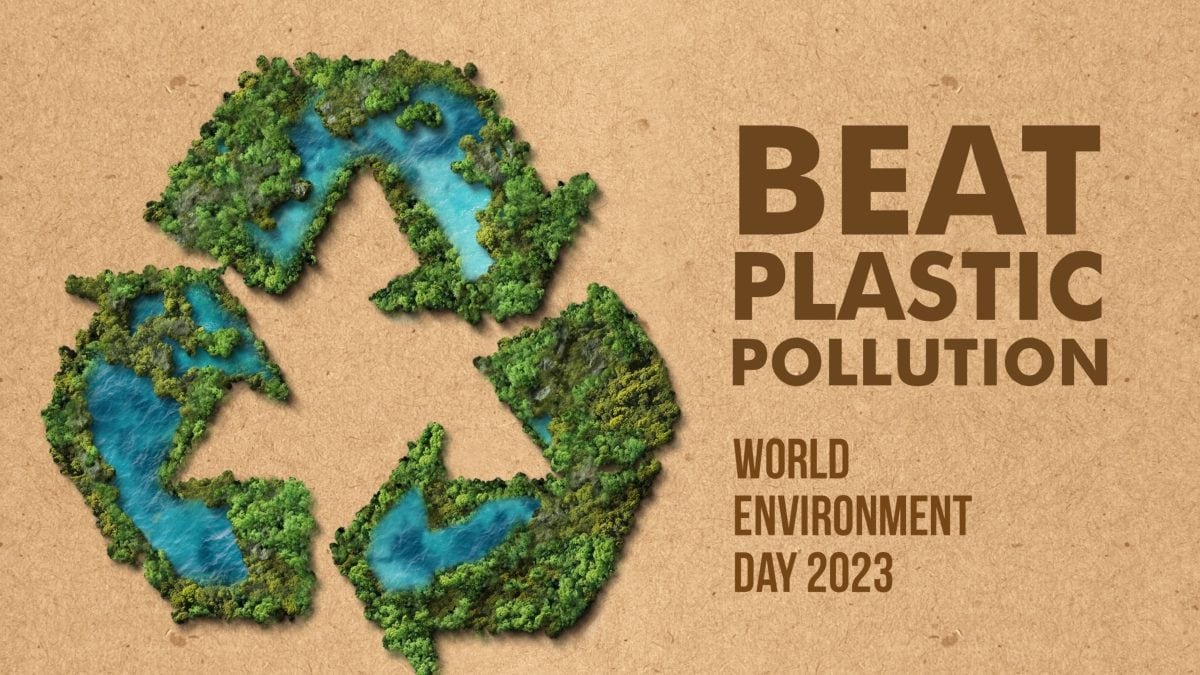World Environment Day 2023: Stark Facts About the Environment You Must Know

According to a Organisation for Economic Cooperation and Development analysis, the world is producing twice as much plastic waste than it did 20 years ago. (Image: Shutterstock)
World Environment Day 2023: The theme for this year is “Solution to plastic pollution” to encourage people to take action against plastic pollution
WORLD ENVIRONMENT DAY 2023: To protect the environment and put a global spotlight on numerous ecological issues, June 5 is marked as World Environment Day (WED). After being established by the United Nations in 1972, the first-ever WED was held in 1973. Ever since then, the day has served as a platform to raise awareness about multiple problems, be it the wildlife crisis, the effects of global warming, or marine degradation, among others.
The theme of World Environment Day 2023 is “Solution to plastic pollution” to encourage people to take action against plastic pollution. To mark the special day, here we have also listed down some startling facts about our planet and mother nature that you need to know.
ALSO READ: Happy World Environment Day 2023: Best Wishes, Quotes, Photos and Messages for WhatsApp and Facebook to Inspire You
Rising Global Temperature
According to a recent assessment from the World Meteorological Organisation (WMO), heat-trapping greenhouse gases and a naturally occurring El Nino phenomenon are anticipated to cause global temperatures to rise to record levels in the next five years.
Between 2023 and 2027, there is a 66% chance that the annual average near-surface global temperature will be at least 1.5°C higher than pre-industrial levels for at least one year. The department also calculated that one of the following five years has a 98% chance of breaking the temperature record established in 2016 when there was an abnormally strong El Nino effect.
Air Pollution
According to the World Health Organisation, short-term and long-term exposure to air pollution has been linked to negative health effects. It raises the chances of getting respiratory infections, heart problems, and lung cancer. Fine particles (PM 2.5) that penetrate deep into the pulmonary airways are the most health-harming pollutants, closely connected with increased early mortality. The organization emphasizes that children, the elderly, and the underprivileged are more vulnerable.
The causes of the increase in air pollutants can be attributed to inefficient transportation, domestic fuel combustion for cooking, lighting, and heating, coal-fired power plants, and agricultural waste burning. Communities can make a healthier world for themselves with the implementation of solid waste management, the provision of access to clean cookstoves and household fuels, energy-efficient vehicles, and much more.
Biodervisty loss
According to the World Wide Fund for Nature’s (WWF) most recent Living Planet Report, the number of mammals, birds, amphibians, reptiles, and fish has decreased by 69% during the past 50 years.
According to WWF research, between 1970 and 2018, the populations of wildlife in Africa and the Asia Pacific fell by 66% and 55%, respectively. Populations of freshwater species have decreased by 83% globally. The results show that mangroves are still being lost in agriculture, and coastal development at a rate of 0.13 percent annually. According to the paper, in addition to natural stresses like storms and coastal erosion, many mangroves are also harmed by overexploitation and pollution.
Rising sea level
For several decades now, the rate of sea-level rise has more than doubled due to a rise in temperatures, causing ice caps to melt faster. According to the World Meteorological Organization’s preliminary State of the Global Climate in 2022 assessment, it has climbed by over 10 mm since January 2020, setting a new record high in 2022. Only the last two and a half years account for 10% of the total rise in sea level since satellite monitoring began over 30 years ago. This is a potential disaster for human beings and the effects will be felt on agriculture as well as lead to a groundwater crisis.
Plastic Waste
According to a recent Organisation for Economic Cooperation and Development (OECD) analysis, the world is producing twice as much plastic waste than it did 20 years ago, with only 9% of it being properly recycled and the majority of it ending up in landfills, being burned, or leaking into the environment.
For all the latest lifestyle News Click Here


